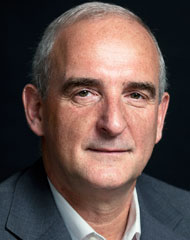| VOAL - Online Zëri i Shqiptarëve | ||||
|
EVROPË! EVROPË! EVROPË! Nga ROGER COHEN, New York Times E Premte, 10.08.2010, 02:50pm (GMT1)
  Që prej rrëzimit të Murit të Berlinit nuk është thënë me zë kaq të lartë fjala "Evropë". Fakti që fjala "Evropë" u tha me zë shumë të lartë në tokën britanike, çështja bëhet edhe më interesante. -- October 7, 2010 Europe! Europe! Europe! By ROGER COHEN BRUSSELS "” Not since the Berlin Wall came down had there been such impassioned cries of "Europe! Europe! Europe!" The fact that the chant came on British soil, was inspired by an Ulsterman and paid tribute to a Scot only made the display more extraordinary. The occasion, of course, was the narrow European Ryder Cup golf victory over the United States, clinched in the last match by Graeme McDowell of Northern Ireland, a cool customer chosen to play last by his Scottish-born captain, Colin Montgomerie. Frenzied waving of the blue-and-gold European Union flag, usually seen wilting behind some dutiful E.U. minister, completed the bizarre tableau. "It was hilarious for us," Olivier Chastel, the acting Belgian secretary for European affairs, told me. "We in continental Europe tend to think our friends across the Channel have a rather particular view of European integration." "Particular" here means hostile. Europe! Europe! Europe! Well, yes, there is something funny about it. European patriotism is a near oxymoron these days "” unless somebody is gripping a 5-iron. You can laugh or cry. The idealism that once prompted talk of a United States of Europe, propelled the creation of a single currency and banished war from the Continent has evaporated in an epidemic of small-mindedness. The European idea, the most compelling and transformative of the second half of the 20th century, has paled. No wonder President Barack Obama skipped an E.U.-U.S. meeting, and even coming up with an agenda for a planned November summit is proving arduous. Nowhere is the new navel-gazing more intense than in Belgium. The country holds the rotating presidency of the 27-member Union even as it contemplates its own disintegration. Belgium's prospects of forming a government after elections last June "” and of holding together "” now appear no better than Iraq's. Getting French-speaking Walloons and the Dutch-speaking Flemish together can make engineering Shiite-Sunni harmony seem like a breeze. I won't burrow here into the minutiae of a Belgian conflict that's about history, language, culture, money and much else. Suffice it to say that but for the impossibility of carving up Brussels, the country might do a Czechoslovak-style split. Certainly that's what a majority in the separatist New Flemish Alliance party, a big winner in the last election, wants. Chastel said nobody expects a new Belgian government before 2011 "” and that's optimistic. In the Netherlands, which also struggled for months to form a government after June elections and has seen the surge of a rightist party appealing to identity politics, the situation is equally fraught. "We are at a breaking point," Marietje Schaake, a Dutch member of the European Parliament, told me in Amsterdam recently. What's going on? When two founding members of the E.U. that were traditionally the most forthright in a federalist vision of Europe find their societies fissuring along ethnocentric lines, and the longtime motors of Europe, Germany and France, are embroiled in arguments over Islam and the expulsion of Gypsies, it's clear that anger and anxiety have prevailed. Europe the integrator is on hold. A fundamental political shift has occurred. Old labels of left and right have blurred in a center where liberal social values and global capitalism (however offset by welfare) prevail. Outside that middle, anti-immigrant and anti-Islam populist parties thrive on the unease generated by economic fragility, outsourcing and mass immigration. From "old Europe" to "new Europe," from Denmark to Poland and Hungary, the split is clear. It will be familiar to Tea Party America. Geert Wilders, the leader of the Dutch Freedom Party, which more than doubled its seats in the June election, has become the global rock star of the anti-Islam movement. As shameless as Iran's Mahmoud Ahmadinejad, he's also the only Western politician as captivated by, and as adept at exploiting, the media's fascination with a rogue. Of late he's taken his message that Islam is a "retarded" culture and "totalitarian" ideology, and that New York must "never become New Mecca," as far afield as Australia and the United States. Two things have happened in the past week: Wilders has become part of a new center-right Dutch coalition, giving backbench support to the Christian Democrats and Liberals in exchange for tougher policies on immigrants, and he's gone on trial for inciting hatred of Muslims. I applaud both developments, the first because Wilders the rabble-rousing populist will only be tempered by government responsibility, the second because, as a free-speech absolutist, I hope his right to say what he wants within a liberal European society will be upheld by the court. He's right to say "the freedom of expression of many, many Dutch people" is at stake. The European idea has suffered from an absence of frank debate. It has been hijacked by technocrats. It needs imagination and openness to be revived. I'd put the anger on both sides of the Atlantic on the November summit agenda. I'd bring in Mongomerie to talk about "Europe! Europe! Europe!" Sure, the cry was not about E.U. federalism; it was about beating America. Still, it said something about a repressed feeling and was the most riveting European moment in a long time. www.voal-online.ch
|
||||
| Copyright © 2005-2008 Nulled by [x-MoBiLe]. All rights reserved. | ||||
